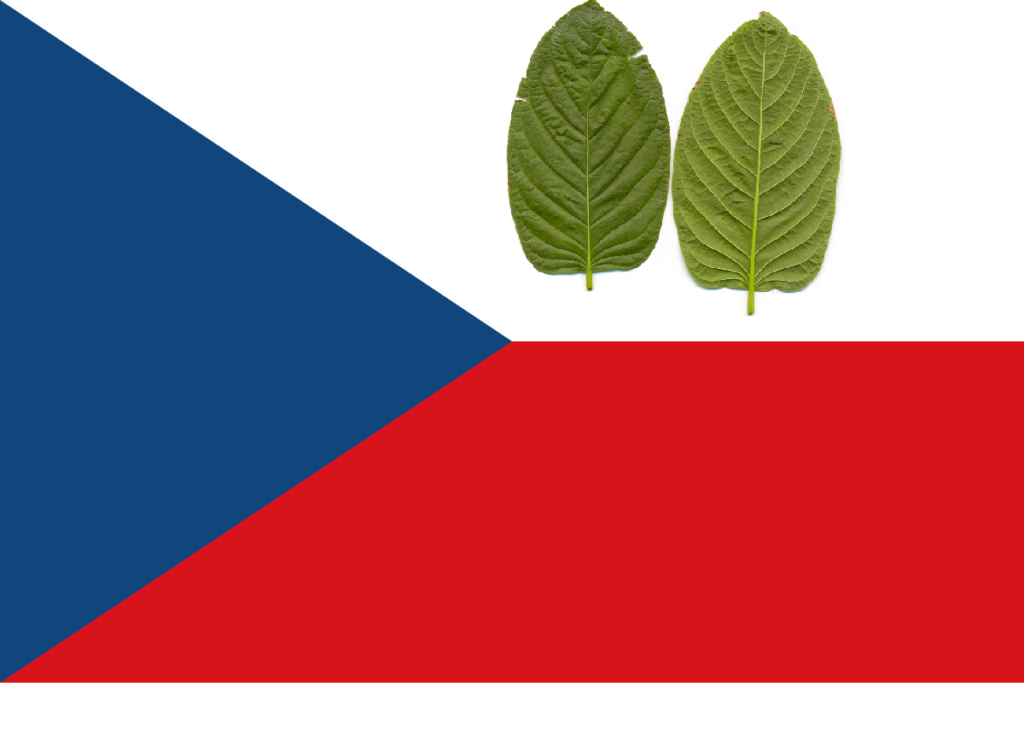
Three groups, the European Kratom Alliance (EKA), the Czecho-Slovak Kratom Association (CSKA), and the Pirate Party (a progressive political party) are pushing for rational kratom regulation in the Czech Republic.
Kratom is legal in Czech Republic, but unregulated. A recent moral panic in Czech media has threatened a kratom ban in the country over the ease of access of kratom to minors. Kratom is available online in Europe, sold as “not for human consumption”. It is also available in vending machines in Czech Republic, where it can easily be accessed by people under 18 year old.
“Kratom is sold virtually everywhere. However, lack of legal oversight leads to many troubling situations where Kratom is sold to minors”, the EKA said in a statement.
The Pirate Party wants to fix this situation by regulating, rather than prohibiting kratom. Janka Michailidu, a member of the Pirate Party and the Government Council for Policy Coordination in the field of addictions, laid out a basic plan for regulation in a recent press release:
“The proposal for the regulation of kratom, in the preparation of which we participated as part of an expert working group, aims to address the main problematic aspects related to its use. It goes without saying that sales to people under 18 years of age are prohibited, as well as the protection of adult users through regulation of the end product. A mandatory part of the packaging should be information from the area of harm reduction – the amount of active substances, a list of risks and possible side effects, basic information for first-time users or contact for addiction services. We believe that regulation based on scientific evidence examining addiction risk reduction will prevent negative impacts more effectively than a blanket ban. Dysfunctional approaches must be left in the past,” Michailida added.
Czech Republic, located in the geographic center of Europe, according to our sister site KratomScience.eu…
…is the only post-communist country to have strongly reduced punishments for some drug-related activities. The production and sale of drugs have always been punishable under Czech criminal law. The possession of drugs was decriminalized after the collapse of the Communist regime, but penalties were reinstated in 1999 for possession in amounts classified as “larger than small.” The new Criminal Code enacted in 2009 differentiates between cannabis and other drugs and imposes less strict penalties for the use and cultivation of cannabis. The use of cannabis for medical purposes was legalized in 2013.
The fundamental pillars of the Czech Republic’s Drug Policy are: primary prevention, treatment, social integration, harm reduction, risk minimization, and drug supply reduction.
The movement for regulation has an ally in Jindřich Vobořil, the National Drug Policy Coordinator. “The Committee of the Government Council for Anti-Drug Policy issued an opinion that there is a need to regulate, prohibit free sale and sale under the age of 18, but not ban it completely,” he told Czech media in October “Restrictions are appropriate, but prohibition is an extreme solution.”
“In the Czech Republic, thirty people die from an overdose of illegal drugs and four hundred from alcohol every year. With kratom, there is no danger,” Vobořil continued. “The numbers of people who come to seek kratom addiction treatment are also not high. Cases of unpleasant reactions, such as anxiety, are described, but this can also occur with caffeine or taurine, which is contained in energy drinks.”
The Ministry of Health, however, has indicated it wants to ban kratom.
Jakub Zientala, coordinator of the EKA, has been in Prague lobbying for regulation. He told Kratom Science about a proposal that kratom, as well as other substances like cannabis and psilocybin mushrooms, would be regulated under a new category called “psychomodular substances” that would not fall under EU food law, nor would be regulated as a drug. If this regulation and new classification is successful, it could serve as a model for regulation not only in other EU member nations, but in the US as well, where kratom falls into a legal grey area between a food, drug, and dietary supplement.
“This is a very fast-moving situation,” Zientala told us. “By January, either we are going to have legislation present in Czech parliament, and then there is another round of lobbying, or we will have prohibition.”
###
